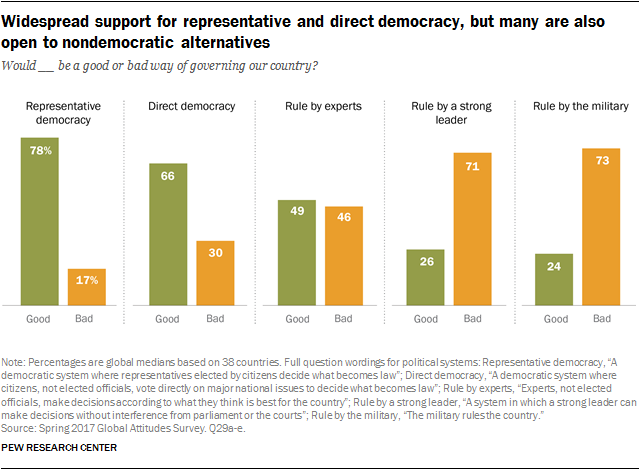Last week, Ezra Klein wrote an interesting column for Bloomberg News in which he argued American national politics is entering a relatively “dull” era, at least compared to the past thirteen years (since 9/11/2001). He argues that this most recent era in which the “federal government mattered more than at any time since at least the 1960s — perhaps the 1930s” is giving way to one in which Washington D.C. “just isn’t where the action is.”
Klein may or many not be correct in this assessment — and he admits that an unforeseen event could “upend the country” and bring the federal government back to center stage — but what I found most intriguing in his article was his concise but powerful overview of several interesting and important developments around the world in which the U.S. national government currently does not play a prominent role. Since most of these are of great import from a broader civic education point of view (regardless of the U.S. federal government’s centrality to them), I highly recommend reading the entire column. Here are the highlights:
Continue reading →






/cdn0.vox-cdn.com/uploads/chorus_asset/file/4082852/Figure_6a_.0.png) to say that living in a democracy is “essential.” Americans overall (but particularly those who are among the top 15% of income earners) are increasingly likely to agree that Americans would be better off with “a strong leader” instead of “elections.” Americans, and democratic citizens throughout the world, have become more likely than in the past to say that “army rule” would be a good way to run the country. Clearly, education about the advantages of democracy, and the abundant disadvantages of nondemocratic alternatives, needs to become a top priority of civic educators.
to say that living in a democracy is “essential.” Americans overall (but particularly those who are among the top 15% of income earners) are increasingly likely to agree that Americans would be better off with “a strong leader” instead of “elections.” Americans, and democratic citizens throughout the world, have become more likely than in the past to say that “army rule” would be a good way to run the country. Clearly, education about the advantages of democracy, and the abundant disadvantages of nondemocratic alternatives, needs to become a top priority of civic educators.